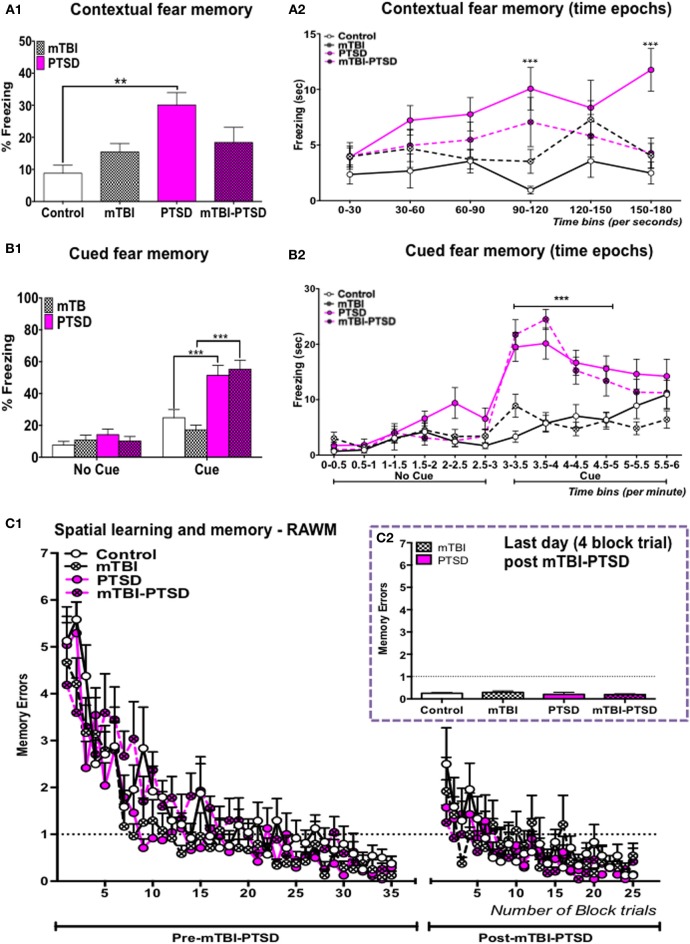Figure 2.
Contextual, cued fear, and spatial memory. PTSD animal group showed a significant increase in their (%) freezing responses to both the context (A1,A2) and the auditory cue (B1,B2), compared to control animals. mTBI inhibited the retrieval of the contextual fear memory response in the mTBI-PTSD group (A1,A2), there was no effect of mTBI on the cued fear response in the mTBI-PTSD group (B1,B2). No significant effect was seen in the fear memory response from the mTBI only group compared to the control group in both the context and with the auditory cue (P > 0.05; n = 8–13). All animals performed equally in the pre-training session in the RAWM test, reaching the training criteria of one-memory errors by the end of the 7-day acquisition training session (C1). Two-way analysis with repeated measures showed no main effect of exposure (and their interaction with time; P > 0.05) with either PTSD, mTBI or their combinations on spatial learning and memory of a pre-learned task (C1) (n = 8–9). No effect was seen on mean memory error during the last day of the trial (C2). Data are presented as mean ± SEM. X-axis in (A2,B2) represent 30 s and 0.5 min (time) epochs over the entire length of the trial. Data in (A1,C2) were analyzed using One-Way ANOVA. Data in (B1) were analyzed using a regular Two-Way ANOVA. Data in (A2,B2,C1) were analyzed using a repeated measures-Two Way ANOVA. Tukey's multiple comparisons post-hoc test was performed in all cases. Asterisks denote statistical significance as follows: **P < 0.01; ***P < 0.001.

